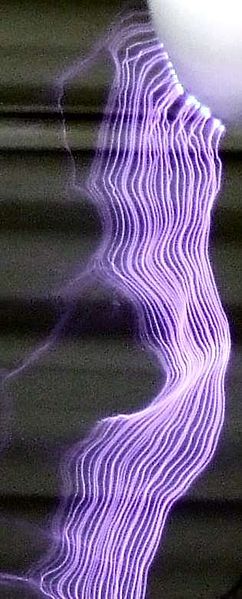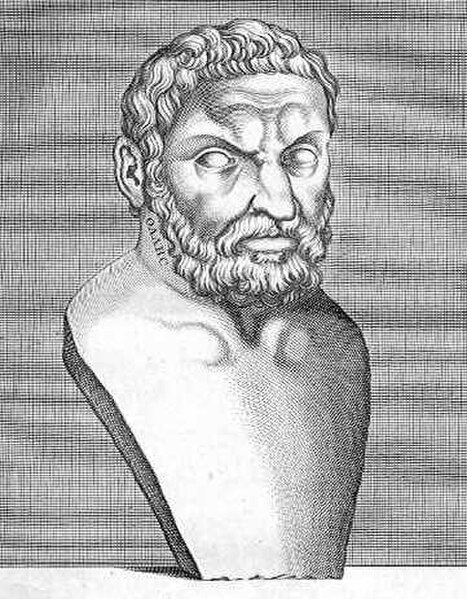High voltage electricity refers to electrical potential large enough to cause injury or damage. In certain industries, high voltage refers to voltage above a certain threshold. Equipment and conductors that carry high voltage warrant special safety requirements and procedures.
High voltages may lead to electrical breakdown, resulting in an electrical discharge as illustrated by the plasma filaments streaming from a Tesla coil.
Long exposure photograph of a Tesla coil showing the repeated electric discharges
Power lines with high voltage warning sign.
High-voltage substation in Kaanaa, Pori, Finland
Electricity is the set of physical phenomena associated with the presence and motion of matter possessing an electric charge. Electricity is related to magnetism, both being part of the phenomenon of electromagnetism, as described by Maxwell's equations. Common phenomena are related to electricity, including lightning, static electricity, electric heating, electric discharges and many others.
Lightning (pictured) and urban lighting are some of the most dramatic effects of electricity
Thales, the earliest known researcher into electricity
Benjamin Franklin conducted extensive research on electricity in the 18th century, as documented by Joseph Priestley (1767) History and Present Status of Electricity, with whom Franklin carried on extended correspondence.
Michael Faraday's discoveries formed the foundation of electric motor technology.








